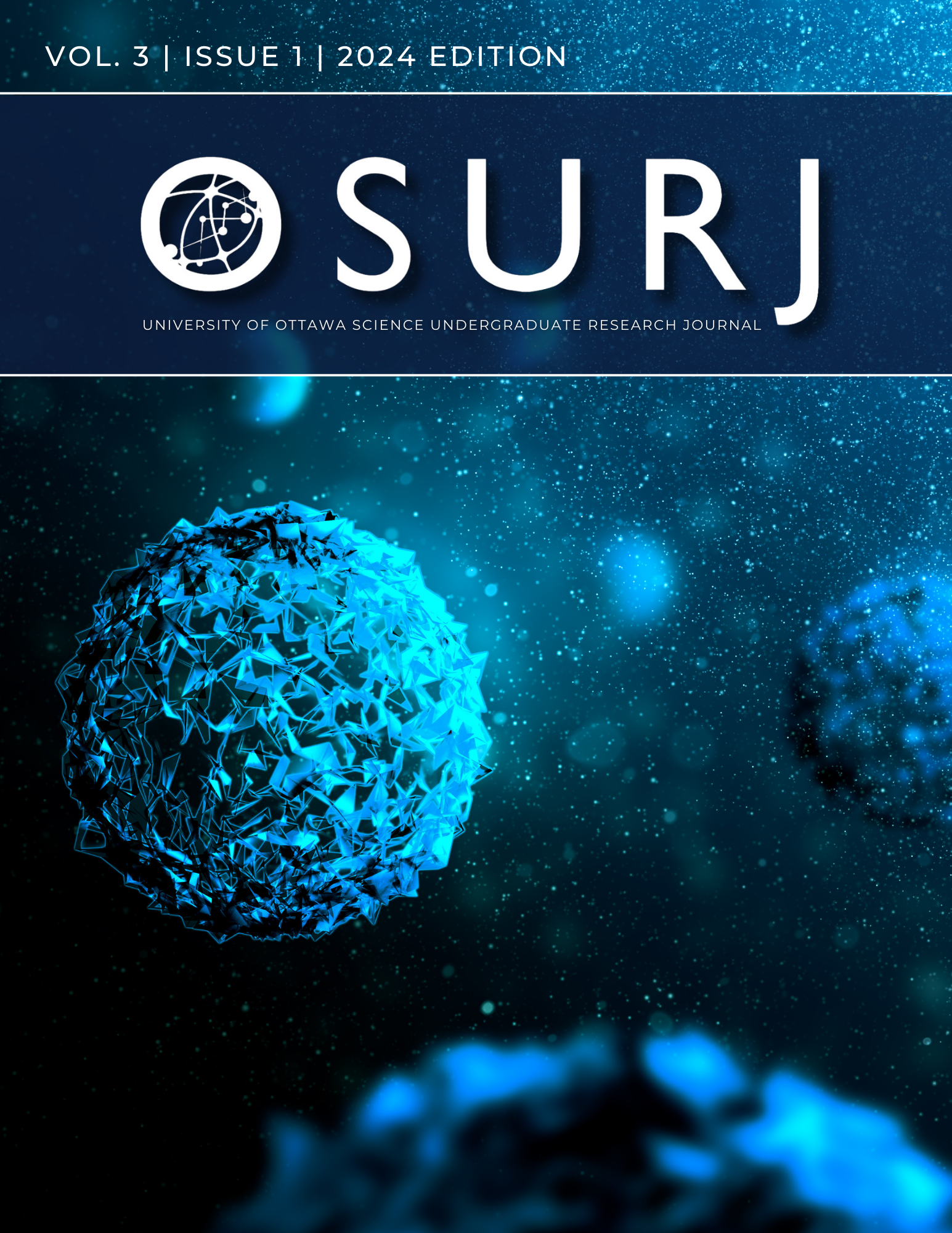Alzheimer’s Across Cultures: Examining the Impact of Indigenous Community Circumstances and Cultural Perspectives on Treatment.
DOI:
https://doi.org/10.18192/osurj.v3i1.7164Abstract
An estimated 10,800 people of Indigenous ancestry in Canada live with dementia [1], for which the most predominant cause is Alzheimer’s disease [2]. While there are no known interventions that can cure Alzheimer's, both pharmacological and therapeutic treatments are widely employed [2]. While these treatment avenues have been widely implemented among the general Canadian population, there is a knowledge gap with regards to how the differing circumstances and cultural approaches of the Indigenous community impact how they interface with these treatments [3].
As such, the proposed study would investigate and summarize the existing literature on how these unique circumstances and cultural perspectives could impact access to care and influence the perception, diagnosis, and treatment of Alzheimer’s in Indigenous communities.
Given the general higher susceptibility of Indigenous populations to Alzheimer’s due to a higher prevalence of modifiable risk factors [4], it is hypothesized that the unique circumstances and cultural perspectives of the Indigenous community will, similarly, reflect poorer treatment outcomes for Alzheimer’s in Indigenous populations than the general Canadian population.
The methodology employed by this study would be a systematic review, serving as a general, but reproducible, outlook on the current state of research in this subject area and as a foundation for further research.
The proposed study would serve to determine the best approaches to and need for implementing accessible and culturally-sensitive care for Alzheimer’s disease in Indigenous communities. The insights gained would allow for further understanding and integration of the underrepresented Indigenous perspective within the healthcare system.
Downloads
Published
Issue
Section
License
Copyright (c) 2024 Amro Habash, Aastha SahOSURJ Publication Rights Policy Agreement Please fill in the following blanks.
I, ____________________ (submitting author) am submitting an article to the University of Ottawa Science Undergraduate Research Journal (OSURJ) entitled _________________________________________________________________________
I. OSURJ Mandate:
The University of Ottawa Science Undergraduate Research Journal is a bilingual multidisciplinary open-access and non-proprietary journal. A journal of this nature embraces all disciplines of science and is the result of a collaborate effort between undergraduate, graduate and faculty members. Our goal is to provide invaluable publishing and submission process experience to undergraduate students and ultimately promote undergraduate research within the UOttawa community.
II. Review Process of OSURJ
OSURJ uses a single-blind review process. The submitted article is first sent to the managing editor who assigns the article to the relevant section editor responsible for the specific science discipline. The section editor provides a preliminary review to confirm that the submission is within OSURJ’s scope after which it is assigned to one undergraduate reviewer and one faculty review for independent review. The reviewers recommend to either reject, accept or conditionally accept the article with revisions required. Based on the recommendations from both reviewers, the section editor makes the final decision of publication.
III. Proprietorship and Author Rights:
Authors retain all copyrights to their research and original data and may publish in other journals at the journal’s discretion. OSURJ acknowledges that all information submitted by the author(s) is their intellectual property and therefore any republication of such property is not allowed without written consent from the submitting author(s). Articles published in OSURJ may be published in other journals.
However authors should be made aware that other publishers may not permit the republication of original research published in an undergraduate journal such as OSURJ. Consequently, the author should consult the publication policies of other journals, and all relevant parties should be made aware of this possibility before proceeding with article submission.
IV. Falsification of Data
Methods for the acquisition and analysis of data should be accurately and fully displayed to allow for replication by other researchers. Data fabrication and alteration is unethical and may lead to unfounded conclusions. As such, it is not permitted by OSURJ.
V. Permission from All Contributors:
Given that research is collaboratively conducted with professors and other students, OSURJ requires that all contributors (co-authors, primary investigators, lab managers, supervisors) consent to the submission of the article to OSURJ.
Any person listed as an author of an article must have contributed greatly to the data, analysis or interpretation of said data and should provide approval of the submitted version. It is unethical to not list those who contributed to the standards of an author and to include those who do not meet the criteria for authorship.
For articles with multiple authors, primary, secondary (etc.) author status must also be agreed upon.


